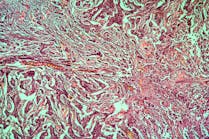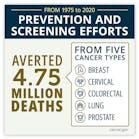Investigators at Rutgers Cancer Institute of New Jersey and Rutgers New Jersey Medical School recently identified a method for safe and effective delivery of medicines to the lungs that can be used for multiple clinical applications, potentially including aerosol vaccination. The results of the study will be published online ahead of print in the December issue of Med, according to a press release.
Targeted pulmonary delivery may have many conceptual advantages over other routes of vaccine administration and therapeutics, particularly for certain respiratory infections (including but not limited to SARS-CoV-2) because they arrive directly at the site of the infection. In this study, investigators identified a small protein sequence (peptide) that they could incorporate onto the surface of small, benign virus particles (bacteriophage or phage) so that they can interact with lining cells of the lung. This interaction mediates the transport of the phage across the lung tissue into the systemic circulation. Once in the bloodstream, the engineered phage particles can activate a systemic immune response and the production of specific antibodies against any pathogen such as, for example, SARS-CoV-2.
Peptide-displaying phage particles were introduced via aerosol into the lungs of experimental animal models. They bound to specific cell surface receptors expressed on the lung cells. This specific interaction between ligand and receptor led to the transport of the phage particles across the lung tissue into the systemic circulation. This transport through the lungs occurs via a physiologic pathway that preserves normal respiratory function and homeostasis, which is key in the design of any pulmonary delivery system.
To investigate whether the aerosol administration of phage particles was safe in mice, the team closely evaluated the morphology and physiology of the lungs and compared them with animal models that received only saline or control untargeted phage particles. No pulmonary tissue damage was observed in any of the conditions or any of the models tested. Importantly, phage particles have already been safely used in clinics for almost a century to treat patients with bacterial infections, so they are safe and approved for use in humans.
Phage-based vaccines trigger a sustained and protective immune response, without any detectable toxic effects in the experimental models tested. Phage particles can be genetically engineered to develop different types of vaccines against other infectious pathogens, as well as other types of medicines which could yield other targeted aerosol applications.





